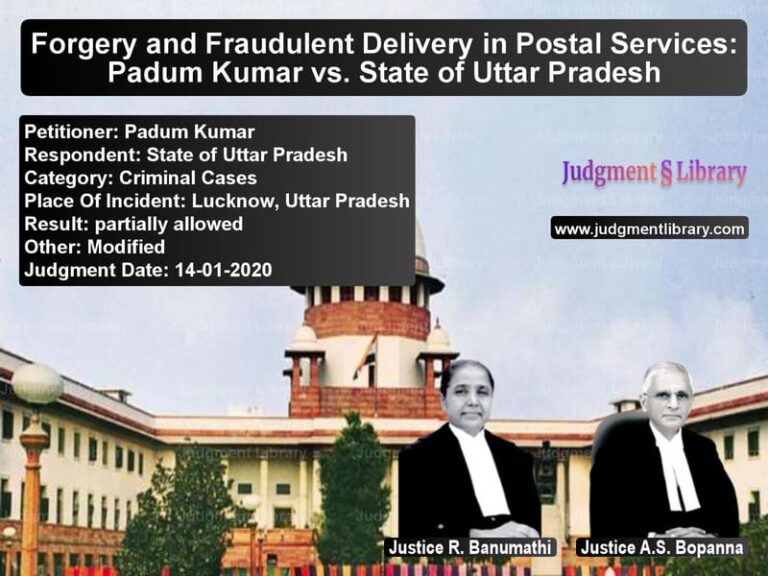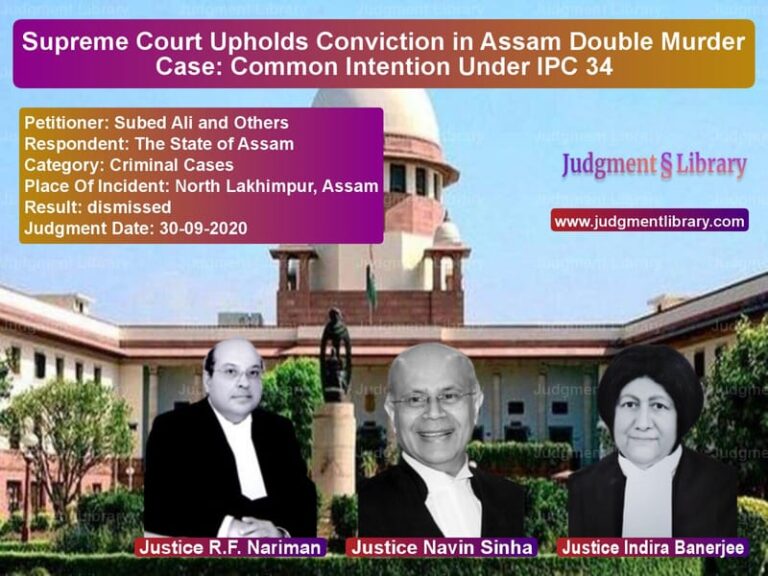Land Transfer and Specific Performance: Supreme Court Ruling on Tribal to Non-Tribal Land Sales
The Supreme Court recently delivered a significant judgment in the case of Babasaheb v. Radhu Vithoba Barde, concerning the enforceability of agreements to sell land between tribal and non-tribal individuals under the Maharashtra Land Revenue Code. This case highlights the legal complexities surrounding land transactions involving tribals and the necessity for prior government sanction.
The matter arose when the plaintiff, Babasaheb, entered into an agreement to purchase a piece of land from the defendant, Radhu Vithoba Barde, a tribal. The agreement, dated 31.07.2001, stipulated a total sale consideration of Rs.2,25,000/-, out of which Rs.2,20,000/- had already been paid. The defendant had also handed over possession of the land to the plaintiff. However, when the defendant refused to execute the sale deed, the plaintiff filed a suit for specific performance.
Background of the Case
The trial court denied the relief of specific performance, instead granting a refund of Rs.2,20,000/- with 6% interest. The appellate court upheld this decision but increased the interest rate to 14% and directed the plaintiff to return possession of the land. Dissatisfied, the plaintiff moved the High Court, which ruled that under Section 36A of the Maharashtra Land Revenue Code, the transfer was invalid as prior government sanction had not been obtained.
Key Legal Issues
- Whether an agreement to sell land from a tribal to a non-tribal is enforceable under the law?
- Does Section 36A of the Maharashtra Land Revenue Code completely prohibit such transactions?
- Can specific performance be granted subject to obtaining government sanction?
Supreme Court’s Analysis
The Supreme Court noted that Section 36A restricts land transfers from tribals to non-tribals but does not outright prohibit agreements to sell. The provision requires prior government approval before the actual transfer of title can take place.
The court observed:
“There is no absolute bar on a tribal entering into an agreement to sell land to a non-tribal. The restriction applies at the stage of execution of the sale deed, which necessitates prior sanction from the government.”
Relying on precedent from Nathulal v. Fulchand (1969), the court held that when a law requires government approval for a sale, a decree for specific performance can still be granted, subject to the buyer obtaining the necessary permission.
Final Judgment
The Supreme Court ruled in favor of the plaintiff, granting specific performance of the agreement to sell. It held that the plaintiff must now seek government approval under Section 36A before executing the sale deed.
Key Takeaways
- An agreement to sell land between a tribal and a non-tribal is not void per se.
- Prior government sanction is required before the transfer can be executed.
- Courts can grant specific performance subject to the buyer obtaining the necessary permissions.
This ruling clarifies that while protective laws safeguard tribal land rights, they do not outright nullify agreements made in good faith. Instead, such transactions must comply with regulatory requirements before being finalized.
Petitioner Name: Babasaheb.Respondent Name: Radhu Vithoba Barde.Judgment By: Justice B.V. Nagarathna, Justice Augustine George Masih.Place Of Incident: Mandve (Bk), Tq. Sangamner, Maharashtra.Judgment Date: 15-02-2024.
Don’t miss out on the full details! Download the complete judgment in PDF format below and gain valuable insights instantly!
Download Judgment: babasaheb-vs-radhu-vithoba-barde-supreme-court-of-india-judgment-dated-15-02-2024.pdf
Directly Download Judgment: Directly download this Judgment
See all petitions in Property Disputes
See all petitions in Specific Performance
See all petitions in Judgment by B.V. Nagarathna
See all petitions in Judgment by Augustine George Masih
See all petitions in allowed
See all petitions in Modified
See all petitions in supreme court of India judgments February 2024
See all petitions in 2024 judgments
See all posts in Civil Cases Category
See all allowed petitions in Civil Cases Category
See all Dismissed petitions in Civil Cases Category
See all partially allowed petitions in Civil Cases Category







